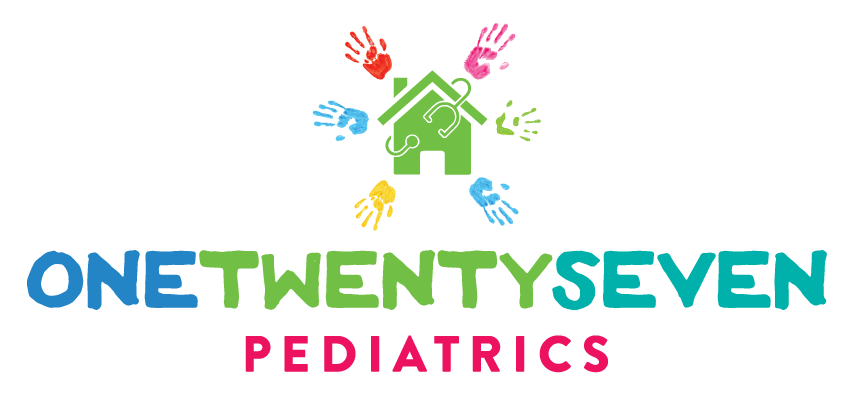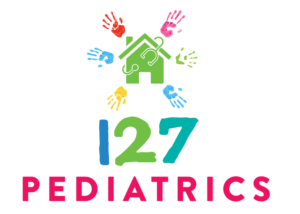Picky eaters are often a source of frustration for parents.
Toddlers are picky eaters, and it is a very normal part of their development.
Is your child refusing to eat anything other than chicken nuggets? Or would your toddler rather play than eat anything at all? Has the word “snack” become a four letter word at your house?
If your answer is yes to any of these questions, then your children’s eating habits may be a source of stress at your house.
You are not alone.
Parents of toddlers worry about what their children eat — and don’t eat. Maybe you feel like your child is only surviving on air and unicorn tears. While that is not a sustainable diet for growing children, there are some things that you can do as a parent to help their child eat better.
Why is my toddler suddenly such a picky eater?
Forming an opinion about ALL things is a hallmark of entering the toddler stage of development. Your toddler’s desire for independence is growing. As a result, his increasing ability to exercise some degree of self-determination are both factors that contribute to him becoming a picky eater, i.e., increasingly difficult to feed during this stage. Often, things need to be their idea and not yours.
Additionally, young children are resistant to change. Small kids like routines and regimens. Throwing a piece of broccoli into their routine may rock their world at first. This is where giving choices and patient persistence come in. For example, you can ask them “would you like this piece of broccoli with your lunch or these carrots?”
However, some kids simply have sensitive taste buds and enjoy eating bland foods at first. Gradually increasing seasoning and different flavors over time will help kids to find new foods to enjoy. You can start with one bland staple that you know your child will eat and then fill the rest of their plate with new foods that have different flavors and textures.
Most notably, picky eaters tend to emerge at around age one. This coincides with when most children start feeding themselves. They can now decide what they want to consume, allowing them to increase their sense of control. Some days they might eat a large variety of foods. On some days, they may not appear to be eating much at all. This is very normal and most children eat enough over a period of time to grow.
In addition, while children usually grow a lot and quickly in their first year, growth slows down in the second year. Toddlers are also learning lots of new skills, like talking, walking, running, climbing, and more. During a time of great change, children often seek “sameness” as much as possible, including sticking to the same small group of foods. This consistency can help them feel safe and secure during a period of rapid change.
What is my role as a parent to help my picky eater?
As a parent, your role is to set a good example for your kids. Try eating a variety of healthy foods yourself. Make sure that your children’s choices are aligned with the types of food they want to eat and enjoy.
Secondly, prepare food together with your child. If you want your child to enjoy eating, allow him to help with the shopping for ingredients and the preparation of the food. Give them age appropriate tasks to complete in order to prepare the family meal.
Don’t show any signs of distaste or indifference when trying new foods. Parents are an important source of dietary preference formations. If you’re trying to get your young child to eat something new, then you need to taste it first. If you’re a “picky” person yourself, then your young kid is likely to copy you when it comes to eating habits. Just as he copies the ways you speak on the phone or waves good-bye to him every day at school.
What are some tips to help my picky eater?
Children take cues from their parents and other caregivers. There are many things that you can do in order to make mealtime pleasant for the whole family, including your picky eating toddler.
- Don’t force your child to eat a certain thing or a certain amount
- Keep a routine. Serve meals and snacks around the same time every day.
- Give your toddler small portions, especially of new foods.
- Talk about different foods with your toddler. Explore colors, shapes and textures.
- Make mealtime enjoyable for your child. Use a cute plate, cut sandwiches in fun shapes, etc
- Cook the same food for everyone in the family. Your toddler should not get a special “kid” meal.
- Involve your toddler in planning meals by giving them simple choices. “Should we have rice or potatoes tonight?”
How can an at-home pediatrician help with your toddler’s picky eating?
Drs. Wadley is a board certified pediatrician that offers convenient, evidence based pediatric care to kids and their families in and around Colleyville, TX. Our practice is limited in size and all house calls so we get to know your kids.
You have direct access to the pediatrician, so you never need to sit on hold or worry that no one will call you back.
If you are tired of phone trees, waiting rooms and never getting timely answers to your questions, give us a call today. We are accepting new patients in Colleyville.
© 127 Pediatrics; August 2022
This article is for informational purposes only and should not be construed as medical advice.

Dr. Andrea Wadley is the owner, pediatrician, and breastfeeding medicine specialist for 127 Pediatrics. She has an established house-calls-only concierge pediatric practice in Colleyville, TX. She is also the owner and operator of the 127 Pediatrics Online Breastfeeding Medicine and Education Center.


